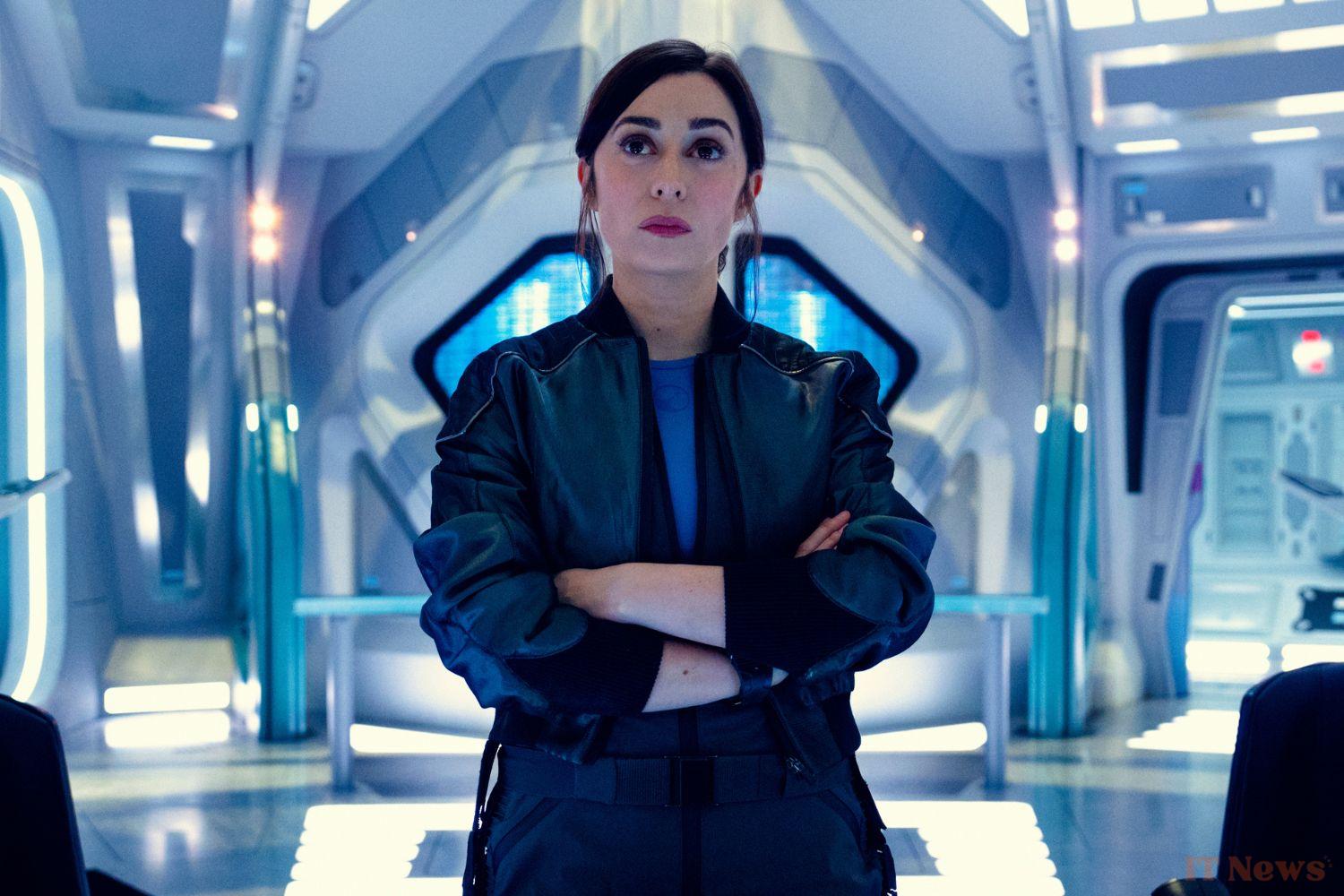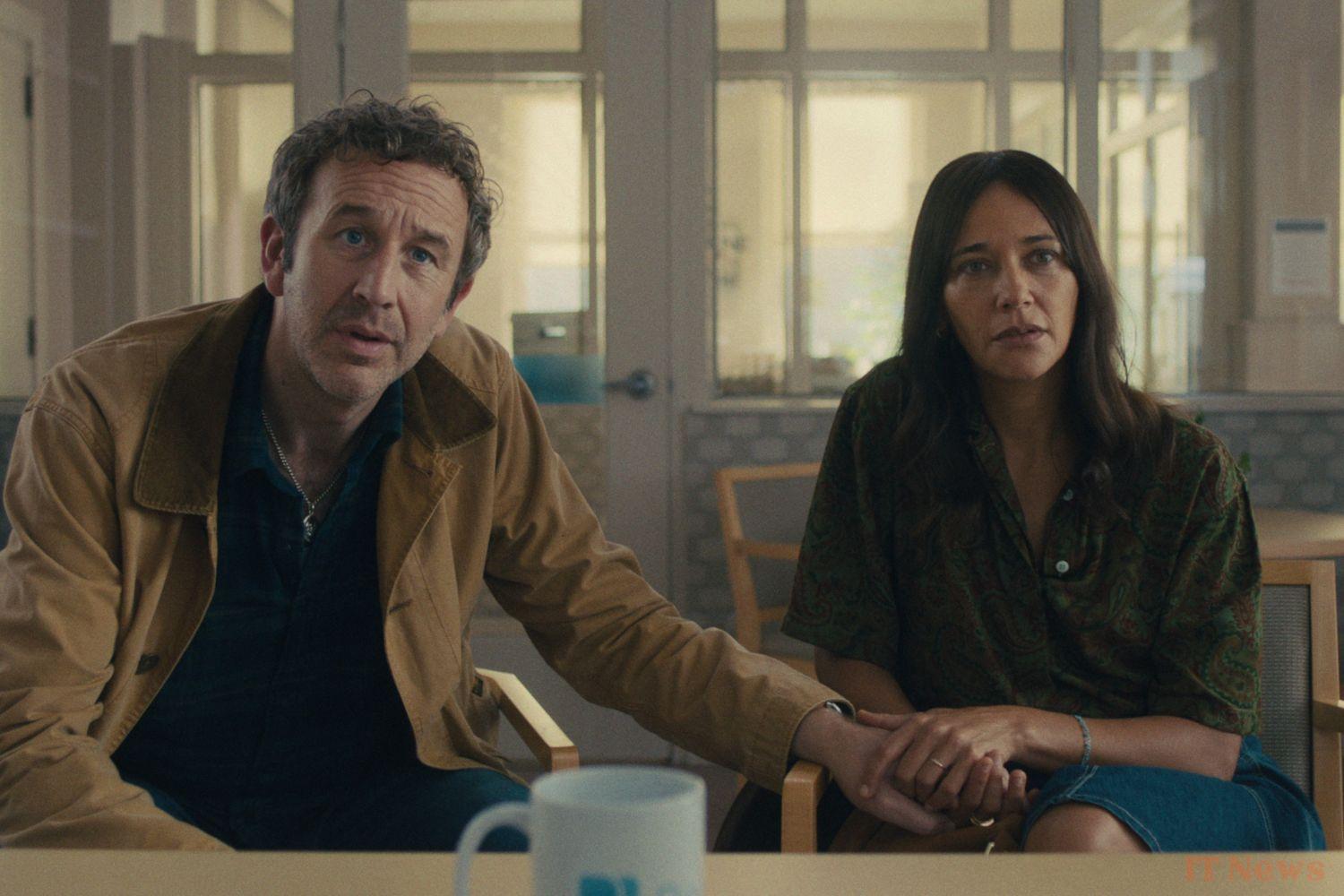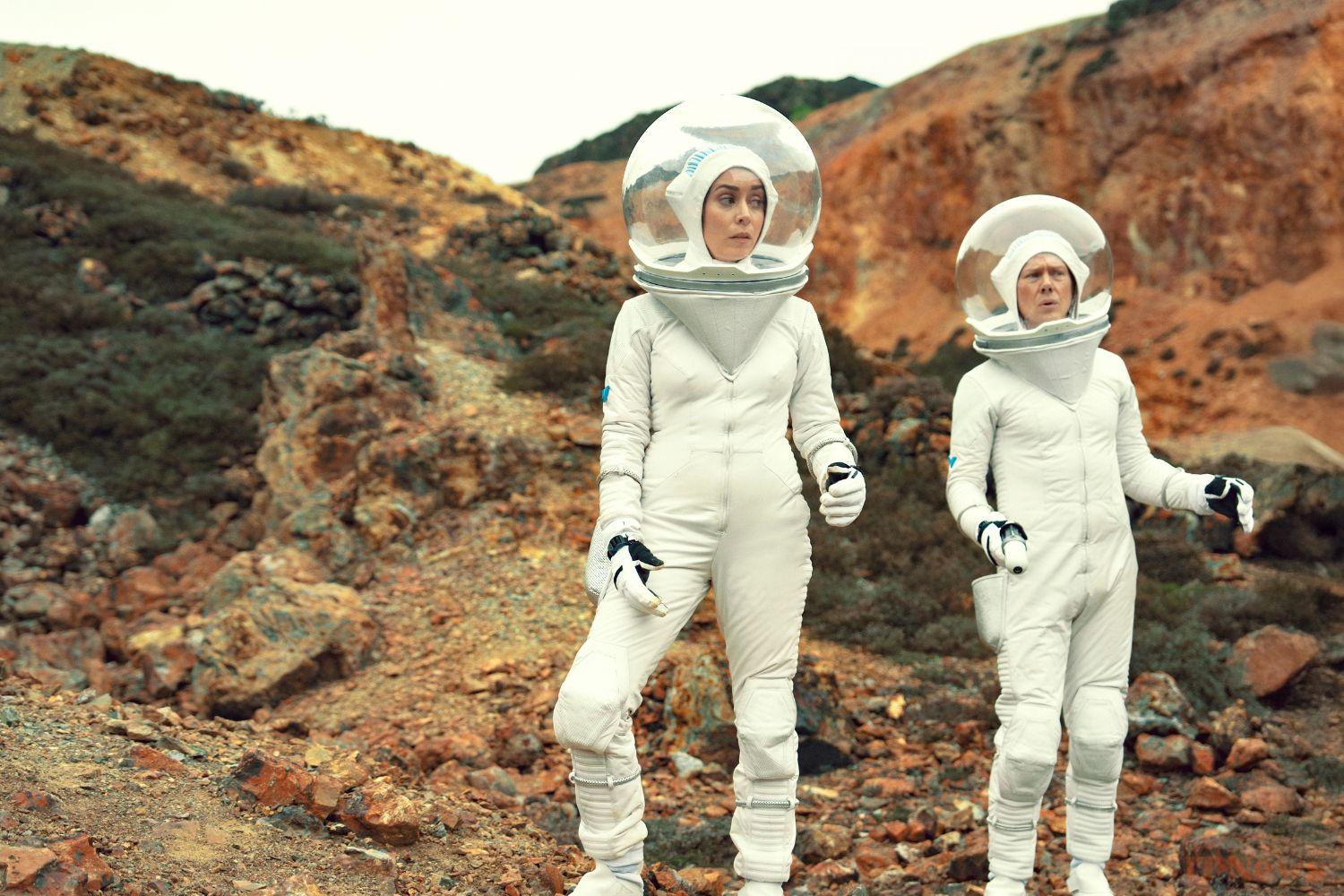What will our future look like? Is it already here? More than a decade after its launch on Channel 4, the anthology series Black Mirror is getting its seventh installment on Netflix. We haven't seen Charlie Brooker's imagination since 2023 and a sixth volume that is at best imperfect, at worst off the mark. But while our contemporary era seems more frightening than any futuristic fiction, does Charlie Brooker still have something to say about our relationship with new technologies? Do the six new episodes live up to the reputation of the production that has become a television monument and even an expression in everyday language? Yes... and no.
Distorting mirror
When it debuted in 2014, Black Mirror had a whole purpose: to construct a hypothetical future. Viewers had iPhone 6s in their pockets, Netflix had barely arrived in France, and Snapchat filters captivated users who could choose to become dogs or spit rainbows. So many innovations that questioned our societies and our relationships with these new technologies that were disrupting our daily lives. A fertile breeding ground for Charlie Brooker's realistic science fiction. The journalist liked to extrapolate real technologies to transport them into plausible, but no less frightening, contexts. The series constantly played with the limits of fiction and reality to better disconcert its audience. And when the situation became too uncomfortable, viewers could cling to the fact that such universes were not likely to see the light of day.
The problem is that in 2025, the future envisioned by Brooker is just as grim. Artificial intelligence is really used to resurrect the dead, a clown really has become President, and Meta has imagined his Metaverse. In 2023, for its sixth season, the series seemed to have revised its approach to focus much more on our present and our past. At the same time, it seemed to have nothing new to tell. It was no longer capable of surprising with new concepts. For its seventh season, Black Mirror abandoned its ambition to drop jaws to return to what makes its stories so special: humanity. Rather than a window onto the future, the anthology series aims to be a distorting mirror. And it's pretty successful.
Mirror, mirror on the wall... who's the craziest?
From the very beginning, season 7 of Black Mirror sets the scene. Gone are the shocking sequences for the sake of being shocking; the series has matured and now aims to tell the story of the average Joe and Joe, a working-class couple in the United States in this case. With “Ordinary People” (normality, as we said), Charlie Brooker delivers an intimate tale about these households held hostage by multinationals always inclined to increase their prices or turn their customers into giant billboards. Any resemblance to tech giants is purely coincidental.
This introduction benefits from a fairly clever writing style, which, while not entirely innovative, convinces us enough to make us want to continue alongside the British creator. While we can regret that it doesn't grab us by the guts like some of the most striking episodes in the anthology, Black Mirror seems to have found its rhythm again. It's a shame that the finale of this first episode doesn't benefit from the same careful writing, that the series feels obliged to bring in new themes at the last moments that blur the lines. Ordinary People tries to tell too much and ends up falling (a little) flat.
Bête Noire continues this momentum by offering a gripping psychological thriller, with an expected conclusion, but carried by two actresses who do not disappoint: Rosy McEwen and Sienna Kelly. The same goes for Plaything, which returns to the approach of the first seasons and the tense tone of certain chapters. However, viewers experienced in the exercise will probably not have the discomfort of the first days, and even rather a feeling of repetition. Among these proposals, it is ultimately the dramatic and sensitive tales that captivate us the most.
I Have a Dream
Hôtel Rêverie and Eulogy are without a doubt the strongest chapters of this new vintage. The first, which sees an actress transported into an old film thanks to virtual reality technology coupled with content-creating algorithms, combines the social questions linked to these (almost real) technologies with a moving fresco about love.
We have fun talking about machines capable of hatching stories to please the greatest number of people, the same ones that we accuse Netflix of using to imagine its projects. We question remakes and other derivative productions at a time when the cultural industry seems to want to devote itself only to the god of nostalgia, and above all we tell the story of the meeting of two actresses who must navigate these worlds of “creation”.
Issa Rae, to whom we owe the excellent Insecure, shines opposite a magnificently anachronistic Emma Corrin. The episode proves that Black Mirror is at its best when it's driven by simple concepts, but a deep desire to develop convincing characters. Eulogy, with the incredible Paul Giamatti, will nevertheless remain our favorite. Here, technology is only the pretext to tell the story of the love we lost through great twists of fate and resentment. Alongside the main character, the episode navigates the memories of a man in the prime of life with rare sincerity.
The series has accustomed us to these breathers in the middle of distressing episodes, like with San Junipero and Hang the DJ. Black Mirror no longer needs to veer into gore or anxiety to convince us; it just has to tell us good stories. And it does it better than before. This attention to storytelling is accompanied by a welcome visual singularity, centered around the photos that are invited to come to life before the astonished eyes of their owner. We will soon return to the sequel to USS Callister, a universe that continues to fascinate us and which appears to be the last bastion of the previous Black Mirror.






0 Comments